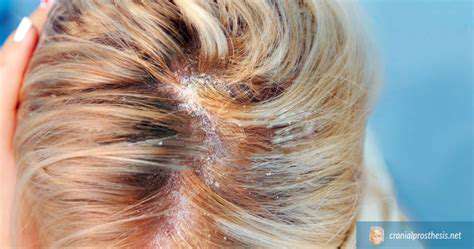Introduction to Sensitive Scalp Issues

Understanding Sensitive Scalp Symptoms
A sensitive scalp can manifest in various ways, making it essential to identify the symptoms.
Common symptoms include tenderness, itching, and redness.
Additionally, some individuals may experience pain when their hair is touched or styled.
Recognizing these signs early can help in managing the condition effectively.
Consulting a dermatologist can provide insights into the underlying causes of these symptoms.
Potential Causes of a Sensitive Scalp
Several factors can contribute to a sensitive scalp, including hormonal changes, stress, and environmental factors.
Using harsh hair products is another significant cause that often goes unnoticed.
Allergies, whether to certain ingredients in shampoos or to other substances, can also play a role.
Understanding the root cause is crucial in selecting the proper treatment and prevention methods.
In some cases, medical conditions may lead to increased sensitivity, necessitating professional evaluation.
Effective Treatments and Solutions
There are various treatments available for managing a sensitive scalp, from over-the-counter shampoos to prescription medications.
Avoiding irritants, such as sulfates and fragrances, is often recommended.
Additionally, incorporating soothing ingredients like aloe vera and chamomile can provide relief.
For chronic issues, targeted treatments such as topical corticosteroids may be suggested by healthcare professionals.
It is vital to adopt a holistic approach, ensuring that both lifestyle and product choices are supportive of scalp health.
Preventive Measures for Scalp Health
Maintaining scalp health can often prevent issues related to sensitivity from developing.
Opting for gentle, pH-balanced hair care products can significantly minimize irritation.
Regularly scheduled scalp massages can help improve circulation and reduce tension.
Limiting sun exposure and using protective gear can also shield the scalp from damage.
Ultimately, being mindful of both product ingredients and lifestyle choices is key to preventing sensitivity.
Common Causes of a Sensitive Sore Scalp

1. Skin Conditions and Allergies
One of the main reasons for a Sensitive Sore Scalp can be attributed to skin conditions such as eczema or psoriasis. These conditions can lead to redness, flaking, and inflammation, leaving the scalp feeling sore and irritated.
Additionally, Allergic Reactions to Hair Products, such as shampoos or dyes, can exacerbate sensitivity. If you notice a sudden increase in sensitivity, consider reviewing the products you are currently using.
2. Infections and Inflammation
Scalp infections, including fungal infections like ringworm, can also result in a sore scalp. These infections may cause itching, redness, and even hair loss in severe cases.
Moreover, inflammation from conditions like folliculitis—where hair follicles become inflamed—can contribute to discomfort. Addressing these infections promptly with appropriate treatment can help alleviate soreness and prevent further issues.
Identifying Symptoms of a Sensitive Scalp
Common Symptoms of a Sensitive Scalp
A sensitive scalp can present itself in various ways, making it crucial to recognize the signs early on. One of the most common symptoms is localized pain or tenderness on the scalp, which can result from various causes including irritation from hair products or condition changes.
Another noticeable symptom is itchiness, which may be persistent and can lead to scratching. This can further irritate the scalp and may contribute to more serious skin issues if not addressed promptly.
Some individuals may also experience redness or inflammation, often indicating an underlying allergic reaction or dermatological condition. It is important to monitor such changes to prevent escalation of the issue.
Flaking and dryness are additional symptoms that can accompany a sensitive scalp. These can result in discomfort and may lead to embarrassing visible flakes in the hair, prompting individuals to seek immediate remedies.
Common Causes of a Sensitive Scalp
Various factors can contribute to scalp sensitivity, with one of the primary culprits being the use of harsh hair products. Shampoos, conditioners, or styling agents that contain sulfates, parabens, or alcohol can strip the scalp of its natural oils, leading to irritation.
Environmental factors play a significant role as well. Changing weather conditions, exposure to allergens, and pollutants can aggravate the scalp, making it more sensitive and reactive to different substances.
Medical conditions such as eczema, psoriasis, or seborrheic dermatitis can also be underlying causes of a sensitive scalp. These conditions often manifest with redness, flaking, and discomfort, requiring targeted treatments and care.
Lastly, stress is a significant factor that can influence scalp sensitivity. High stress levels can lead to tension headaches and muscle strain in the scalp area, exacerbating feelings of discomfort or pain.
How to Soothe a Sensitive Scalp
Soothe a sensitive scalp with gentle care, starting with the choice of hair products. Opt for fragrance-free and sulfate-free options that are designed for sensitive skin, ensuring they are free from harsh chemicals that could cause irritation.
Regular scalp massages can also provide relief. Massaging the scalp stimulates blood flow, which promotes relaxation and can help to alleviate discomfort. Use natural oils like coconut or jojoba oil, which can provide added nourishment and reduction of dryness.
Incorporating a consistent moisturizing routine is essential. Use leave-in conditioners or hydrating treatments that help maintain moisture levels in the scalp, supporting its barrier function and reducing sensitivity.
Finally, avoid tight hairstyles that put stress on the scalp. Looser hairstyles and taking breaks from hair elastics or hair accessories can help reduce tension and discomfort, promoting overall scalp health.
When to See a Dermatologist
While many cases of sensitive scalp can be managed at home, there are times when consulting a dermatologist is necessary. If symptoms persist despite home treatments, a professional evaluation can provide insight into underlying conditions.
Signs of infection, such as swelling, pus, or foul odor, warrant immediate medical attention. These symptoms could indicate a more serious condition that requires specific medical intervention.
If hair loss accompanies scalp sensitivity, it is crucial to seek advice from a dermatologist. They can assess whether the hair loss is due to traction alopecia, hormonal changes, or other medical issues that need addressing.
Additionally, if over-the-counter treatments do not yield improvements within a few weeks, consulting a physician can lead to a tailored treatment plan that may include prescription medications or specialized therapies.
Preventive Measures for Sensitive Scalp
Prevention is key when it comes to managing a sensitive scalp. Begin by identifying and avoiding known triggers, including certain ingredients in hair care products, allergens, and environmental irritants that may exacerbate sensitivity.
Regular scalp cleaning is essential; however, it is important to choose products that clean without stripping natural oils. A balance between cleanliness and moisture retention can help maintain scalp health.
Regularly evaluate your hair care routine, ensuring that you are not overloading your scalp with too many styling products. This can lead to buildup and, ultimately, irritation.
Finally, maintain a healthy lifestyle with proper hydration, nutrition, and stress management. These holistic approaches can greatly contribute to overall scalp health, reducing the likelihood of developing sensitivity in the first place.
Effective Treatments for a Sensitive Sore Scalp
Identifying the Causes of a Sensitive Sore Scalp
Understanding the underlying causes of a sensitive sore scalp is crucial for effective treatment. Common culprits include skin conditions like psoriasis, eczema, and dermatitis. These conditions can cause inflammation and discomfort, often leaving the scalp feeling tender.
Another significant factor may be allergies or sensitivity to hair care products. Ingredients like sulfates, parabens, or fragrances can lead to adverse reactions that make the scalp sore and itchy. Keeping track of new products introduced into your hair care routine can help you identify potential triggers.
Environmental factors such as sun exposure, pollution, and extreme weather can also impact scalp sensitivity. Prolonged exposure to harsh elements can damage the skin barrier, leading to discomfort. Protecting the scalp from the sun with hats or protective hairstyles can help mitigate these effects.
Additionally, stress can exacerbate scalp sensitivity. Psychological stress can manifest physically, prompting conditions like tension headaches or exacerbating existing scalp issues. Engaging in relaxation techniques and self-care can be beneficial in managing both stress and scalp sensitivity.
Home Remedies for Immediate Relief
When dealing with a sensitive sore scalp, several home remedies can offer immediate relief. One of the simplest options is to use aloe vera gel, known for its soothing and moisturizing properties. Applying it directly to the scalp can help reduce inflammation and alleviate discomfort.
Another effective remedy is to use a cool compress. Applying a cool cloth or ice pack wrapped in a towel to the sore areas can help reduce swelling and numb the pain. Just be sure to limit the application time to avoid potential skin damage.
Tea tree oil is another popular natural remedy. Due to its antifungal and antibacterial properties, it can help soothe irritation and reduce itching. Diluting it with a carrier oil before applying is important to prevent skin irritation.
Lastly, consider incorporating scalp massages into your routine. Gentle massages can increase blood circulation to the area, promoting healing and reducing tension. Opt for natural oils like coconut or jojoba oil during the massage for added nourishment.
Consulting Professionals for Long-Term Solutions
If at-home remedies fail to alleviate your symptoms, consulting a healthcare professional is essential. A dermatologist can conduct a thorough examination and identify specific skin conditions that may be causing scalp sensitivity, leading to tailored treatment options.
Prescription treatments, such as topical steroids or medicated shampoos, may be recommended for more severe conditions. These products can help manage inflammation and restore the scalp's health over time.
In some cases, a trichologist—an expert in hair and scalp health—may help diagnose and treat underlying issues. They can provide personalized advice on hair care routines and recommend products that suit your specific scalp sensitivity needs.
Lastly, keeping an open line of communication with your healthcare providers about any changes in your symptoms is important. Regular check-ups can ensure that any emerging issues are addressed promptly, leading to long-term relief and scalp health.
Preventive Measures for Scalp Sensitivity
Understanding Scalp Sensitivity
Scalp Sensitivity Can Manifest as tingling, itching, burning, or excessive dryness. These sensations may occur due to various factors, including environmental irritants, hair care products, or underlying skin conditions. Recognizing the symptoms is crucial for effective management.
Common contributors to scalp sensitivity include allergies to specific ingredients in shampoos or conditioners. Additionally, exposure to harsh weather conditions, such as extreme cold or excessive sunlight, can exacerbate sensitivity. It is essential to be observant and identify triggers to mitigate their effects.
Individuals with skin conditions like eczema or psoriasis may also experience heightened sensitivity. These conditions can lead to inflammation and discomfort, making ongoing care and sensitivity management necessary. Consulting with a dermatologist can provide insights into effective treatment options.
Taking note of lifestyle factors is equally important. Stress and poor diet can impact scalp health; thus, promoting relaxation and balanced nutrition can foster a healthier scalp environment. Exploring these aspects can bring about a significant improvement in overall scalp sensitivity.
Effective Strategies to Protect Your Scalp
To prevent scalp sensitivity, choosing the right hair care products is vital. Opt for gentle, sulfate-free shampoos and conditioners designed for sensitive skin. Reading labels can help avoid common irritants, allowing for a more soothing hair care routine.
Regularly maintaining a clean scalp is essential; however, over-washing can strip natural oils. Finding a balance between cleanliness and hydration is key. Washing hair two to three times a week with a gentle cleanser can help maintain a healthy scalp environment.
Incorporating natural oils, such as jojoba or coconut oil, into your hair care routine can provide added nourishment and protection. These oils can help lock in moisture and reduce irritation while offering a calming effect on the skin.
Lastly, wearing protective hairstyles and limiting the use of heat styling tools can shield the scalp from additional stressors. Consider using head coverings (like hats or scarves) during extreme weather to provide an extra layer of protection against environmental factors.